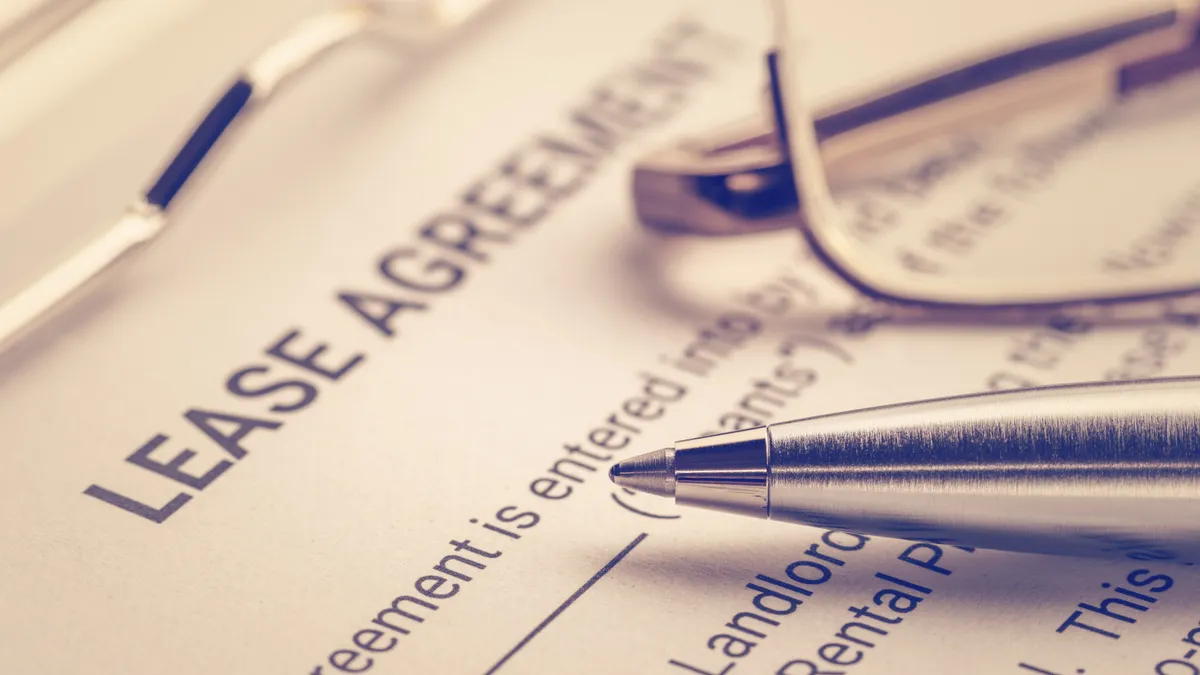Dive Brief:
-
The Financial Accounting Standards Board voted at a meeting Wednesday to move toward finalizing two narrowly targeted updates to its lease accounting standards, putting the changes on track to become part of generally accepted accounting principles as early as next month.
-
The changes to current standards center on leases between entities under common control, such as a parent and a subsidiary or affiliates. The first update would provide a “practical expedient” or a kind of workaround for determining if a lease arrangement exists while the second update provides guidance for amortizing leasehold improvements, according to FASB materials.
- “We’re talking about very narrowly focused amendments that hit a subset of leasing arrangements and both reflect the board acting on requests, particularly from the private company preparer community,” Scott Muir, a partner in the department of professional practice of KPMG U.S., said in an interview. “This was effectively the relief requested.”
Dive Insight:
The updates come as a new era of lease accounting standards is getting real for private companies.
Better known as ASC (or Topic) 842, companies must record operating leases longer than one year on their balance sheet, both as an asset and a liability, in the same way as capital leases have always been recorded. Public companies have been subject to the new standards for some time, but the requests for the updates have emerged as private companies are now also subject to them as of fiscal years beginning Dec. 15, 2021.
At the meeting, board members voted 7-0 to approve the first update that is expected to reduce legal and other costs as private companies deal with the accounting treatment for leases. Under the change, a private company doesn’t have to determine whether the terms and conditions of a lease are enforceable as long as the control arrangement is in writing and meet the conditions for a lease.
FASB members voted 4-3 on a second update to standards that will change how private and public companies should treat improvements made to a property under so-called common-control leases.
Under existing standards, leasehold improvements in such cases must be amortized over the shorter of the useful life of the improvements or the lease term, Muir said. Under the proposed update, companies would amortize the improvements over the useful life of the improvements to the common control lease group so long as that company uses the property over the life of the lease.
The updates are currently on track to be effective for fiscal years beginning after Dec. 15, 2023.












